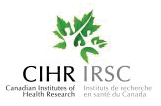Overview of Herbal Medicine By Bendle
By Bendle
The History
Perhaps all human cultures throughout the world and throughout history have used some form of herbal medicine. Certainly plants which are still used as medicines have been found in ancient burial
sites around the world – the oldest may be the grave of a Neanderthal man from (what is now) Northern Iraq estimated to be 60,000 years old. Currently, worldwide, most medicines are still derived
from plant sources.
Within different cultures herbal medicines have been used in different ways. In Britain, until relatively recent times, there were folk healers with a reputation for curing particular complaints.
These people often learned their skill from their parents and would typically only use a small number of plants and would only claim to be able to help one or two types of affliction. The old herbals
in this country were to some extent originally compilations of such information.
Traditional healers around the world have learned to find plants within their immediate environment that help to heal a range of illnesses and injuries. Virtually all tribal peoples around the world
employ some form of herbal medicine. Many cultures have developed complex theoretical frameworks for understanding both disease and the application of herbs as medicine. Herbal medicines are an
important part of Traditional Chinese medicine, of Ayurvedic practice in India, and of Tibb Unani medicine across the Islamic world. Herbs were the main tools for improving health in the ancient
Greek theories of health and illness and these formed the basis of medical knowledge in Europe up until the modern era.
Over thousands of years of trial and error use, detailed pictures of the actions and applications of plant medicines have been compiled and refined. The theoretical constructs around their use
change, but the plants remain. Over the last 150 years traditional descriptions of the ways in which plants work as medicines have been supplemented with biochemical analysis and research into plant
pharmacology. Initially this research saw the development of pharmaceutical drugs derived from plant sources.
Plants were analysed to determine which, of the dozens of complex organic compounds of which they are composed, were the "active constituents". The thinking was along the lines of "why give a patient
a herb tea with an indeterminate amount of active ingredients, when it is possible to administer a small white pill with precisely measured amounts?" And so drugs such as digoxin, derived originally
from foxgloves, and aspirin, based on chemicals found in meadowsweet and willow bark, were isolated and then synthesised artificially.
More recently we have discovered that the effect of isolating a medicinal compound from its parent plant may increase the number of side effects associated with that drug. The substances in plants
that chemists wanted to eliminate from medicines can turn out to have a modulating effect on a herb's actions and are possibly beneficial. For example if meadowsweet is used as an anti-inflammatory,
it does not have the stomach-irritating side effects that are associated with aspirin. It seems that nature has provided us with well formulated drugs in the form of the weeds that grow on our
doorsteps!
Herbal Medicine Today
There are two main ways in which herbal medicine is accessed in this country at the present time:
- Over the Counter Medication (OTC) from health food stores and chemists
- Via a consultation with a professional medical herbalist.
Whilst OTC remedies are marketed very much in the line of a particular herb being the remedy for a particular complaint, medical herbalists will work rather differently. A herbalist will think of
herbs as having a number of actions (such as promoting wound healing or as being anti-inflammatory) or qualities (such as being drying or cooling), and will try to match these as carefully as
possible to what they have learned about the patient and their needs. To do this they will usually make up a mixture of herbs which will be dispensed as either a tea or as a tincture.
The aim of this prescription will be to support the body's own tendency to heal itself, and will be uniquely formulated for each particular patient. Two people suffering from, say, rheumatoid
arthritis, are likely to be offered the same anti-inflammatory herb from a health food shop. If the same two people visit a medical herbalist, they will probably each be given different prescriptions
according to how long they have had the illness, how it affects them and which factors alleviate or aggravate their condition. The herbalist will also take into account the patient's general state of
health and medical history.
A wide range of herbs is used in this country, from all over the world. These range from common British "weeds" such as dandelion – a powerful diuretic and liver tonic; to exotics such as the bark of
the South American Lapacho tree – an immune-system stimulating plant used for its antibiotic and anti-fungal actions. While most of the plants used as remedies are very gentle in action some need to
be treated with great respect.
Many herbs have lots of actions, some of which will be deleterious for particular users. For example sage is a useful first aid remedy for mouth infections and sore throats, but it also reduces the
supply of breast milk in feeding mothers. Other herbs may interact with orthodox medication and a few are poisonous in the wrong dosage. For these reasons it is wise to consult a trained medical
herbalist, or at least to refer to a good reference book.
Although the government is seeking to register herbalists in the UK, there is currently no legal restriction on the title "herbalist". Whilst there are very few people practising as herbalists
without training it is wise to check someone's credentials if you are seeking a consultation.
Ask about a herbalist's training, their medical knowledge and their willingness to communicate with orthodox medical practitioners if necessary. Word of mouth referrals are probably useful in finding
out about a particular herbalist and their approach. There are a confusing number of professional bodies covering herbalists from both western and other approaches. Those organisations whose members
are likely to be state registered in the near future will be members of the European Herbal Practitioners Association.
In recent years the huge demand for herbal remedies in the OTC market has damaged populations of some plants that are harvested from the wild. Most herbalists in this country see their role as
looking after the plants that they use as well as the health of their patients. To this end they seek to obtain their supplies from ecologically minded suppliers.
Contact Us
Chalmers Medical Building
328 Hwy 7 East Suite 201,
Richmond Hill ON L4B 3P7
Tel: 416 399-3888
E-mail: info@aahclinic.com
Conditions Treated
Effective Herbal Therapy for Inflammatory Bowel Disease
NO Surgery!
Carolyn XU Treats Ulcer Colitis Successfully
Considering Therapy?
Resource Links
References
Donation
Great things happen when you put your heart into it.
Click Here to Send us your request
Tips
Questions about your first appointment or if your insurance will cover the cost? Find more information below.















